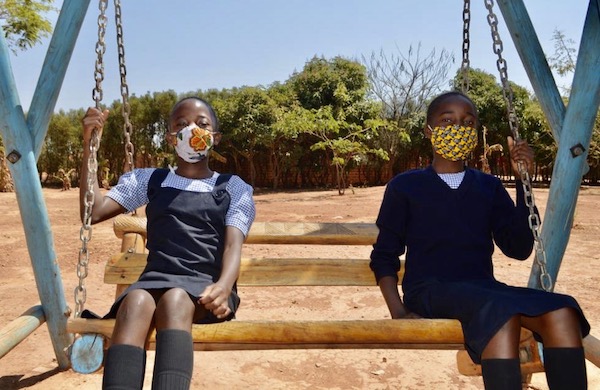
Ending climate change, reducing poverty, and creating equality are far more than just trending topics. In 2015 the United Nations came together to develop 17 sustainable development goals to create a better future for our world and its inhabitants. As an organization, we’ve made it our mission far before 2015 to embody these very goals. We’ve developed programs and an organization that consistently works towards a better, more sustainable future for all. Because sustainability is not a trend, but rather the only solution moving forward.
Here are just a few of the ways Malaika feels both aligned with and deeply committed to the #RoadTo2030.
Through education
In Sub-Saharan Africa, there are currently over 50 million girls unable to receive a basic quality education. For almost 10 years Malaika has been dedicated to providing access to both primary and secondary education to over 300 of these girls. From the very beginning, our mission has been to widen the scope of education, specifically targeting young girls in our efforts to bridge the gender gap. With classes in French, English, information technology, sciences, and more, we aim to empower young women by challenging them, strengthening their critical thought, and supporting them in their right to an education. We believe that education is the key to empowering young women with the resources to move towards true gender equality. Without a constant push towards more access to education, gender equality cannot be reached. At Malaika, we are doing all we can to even out the playing fields.
Through our community center
In addition to education and gender equality, our mission aligns strongly with the UN’s goal of a more inclusive and sustainable economic growth. Working towards full employment for all, we offer free literacy and vocational training for over 5,000 community members of all ages. Our Kalebuka Football for Hope Center gives the community a place to foster their own innovations while learning about everyday issues that directly affect them. To have a communal space that encourages the accumulation of knowledge, personal growth, and more resilient infrastructure means that we can actively make steps towards completing the UN’s Road to 2030. In partnership with FIFA, we opened the center agreeing on the mission of a more inclusive space to promote further industrialization and learning. By providing regular access to the internet in our centers we are giving an opportunity for the community members to expand their knowledge and communicate with an outside world that was previously inaccessible to them. In doing so, we hope each member can be inspired by empowering them with opportunity and working towards a more sustainable economy with decent work for all.
Through water and health
One of our main initiatives is to provide access to clean water. Clean water and sanitation are the fundamental building grounds for reaching the rest of our goals. Without access to clean water the risk of disease increases exponentially, and child mortality rates soar. Fresh water is essential for safe hygiene, disease prevention, and creating an acceptable standard of living that should be fundamental for all. In the most rural sections of Africa it is common that women are met with the task of trekking for hours in search of water for their families. It is these same women who lose out on the opportunity to both learn and work, which inevitably furthers the gender divide. In order to combat both the health risks and provide equal opportunity, we have made it our mission to ensure that there is a far greater access to fresh, drinkable water. With 20 wells so far, each year we provide water to over 35,000 people in the community. In creating even more wells in the future we will have the opportunity to work towards a greater well-being for all our global citizens. Other health initiatives we have taken have included more than 11,000 mosquito nets to prevent malaria, as well as free sanitary products for all menstruating females. This enables them to stay in school while on their periods, live healthy lives, and relates back to our goal of equal education.
Through agriculture
The number two goal on the UN’s Road to 2030 is to end world hunger and to promote sustainable agriculture. We grow an organic garden full of fruits and vegetables right onsite and use those crops to provide nutritious meals for our students and staff. Many of our students lack food security, and these are the only two meals they receive during the day. Students that are starving do not have the capacity to pay attention. We believe education and hunger are strongly interconnected. Our efforts to provide nutrient rich breakfasts and lunches are just the base level of what we can do to actively fight world hunger. We also include out-of-school youth conservation and farming programs in order to promote the continuation and expansion of these healthy, sustainable practices. At Malaika we make it a point to listen to the needs of our community. If that means they would like more programming that teaches them how to create food-based businesses, or if that means providing extra meals from time to time, we try our best to adapt. With our entire school 100% solar powered we always have sustainability in mind and fighting food hunger at the top of our priorities.
